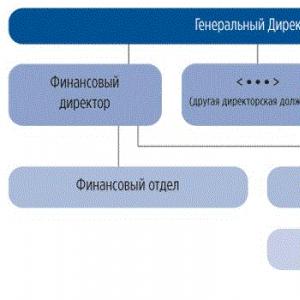Is it profitable to take vacation on weekends? When is the best time to go on vacation? Why is it not profitable to take a vacation in January or May?
When is the best time to go on vacation? There is not and cannot be a universal answer to this question. It is more convenient for some to relax with children in the summer, some prefer winter sports and go on vacation in January, others choose spring summer cottage work... And when is going on vacation not only pleasant, but also profitable? To ensure your holiday pay makes you happy, read the recommendations of Superjob.ru.
July is more profitable than May or January
So, what rules should you follow when choosing a vacation time from a financial point of view?Rule one: in months in which there are many non-working holidays, the amount of vacation pay will be less. On the contrary, if there are many working days in a month, then more money will be credited.
The thing is that if there are many holidays in a month, then the so-called cost of a working day increases. According to the Labor Code, non-working holidays are not included in the number of calendar days of vacation and are not paid, but they increase the duration of rest.
From this point of view, taking a vacation in January or May is unprofitable - there are too many holidays and too few working days. But in the summer months (July and August), there are noticeably more working days, which means relaxation is not only pleasant, but also useful for your personal budget. So the best friend when planning a vacation is the production calendar: it will tell you exactly when and how much we work.
Time or money?
Rule two: dividing your vacation into parts is unprofitable. Everyone knows that the vacation of an ordinary Russian employee is 28 calendar days. According to the Labor Code, one of its parts must be at least 14 calendar days. As for the remaining 14, the law does not regulate how they can and cannot be divided. Those who like to rest longer know how to organize this: by taking (with the employer’s consent) a vacation from Monday to Friday (for 5 working days), the employee actually rests the whole week and thereby “saves” himself 2 days of vacation. By repeating this again (again, if the company does not object), the employee again saves 2 days of rest - thus being able to take almost a week more rest!However, this trick also has a downside - financial. Not everyone knows that weekends adjacent to vacation are not paid. If you take vacation from Monday to Sunday, then you will receive vacation pay for the weekend too. The difference can be significant.
Once again about the benefits of the award
However, the amount of vacation pay also depends on another very significant factor - the employee’s income. Rule three: vacation pay will be higher if during the billing period the employee received not only a salary, but also incentive payments (bonuses). An employee’s sick leave naturally reduces his income, and therefore his vacation pay.Any accountant will explain to you that, by law, all vacation days are paid in the amount of average earnings. It is calculated as follows: the accrued salary for 12 months (this includes salary and bonus) is divided by 12, the result is divided by another 29.3 (this is the average monthly number of calendar days). We get the average earnings for 1 day. Now we multiply it by the number of vacation days (calendar, of course) and - voila! - before us is the amount of vacation pay.
Just don’t forget that when calculating average earnings, only working days are taken into account, and if during the last 12 months you went on vacation or were on sick leave, then all the so-called vacation and sick leave money will not be included in the calculation of the average salary for 12 months. And the result in this case will be divided in accounting not by 29.3 days, but by the average number of days that will remain without sick leave and vacation.
In other words, if during the vacation period you received only a salary (without incentive payments), then your average earnings will be less. From this point of view, going on vacation on the eve of the expected bonus payment is clearly unprofitable: it is better to wait and please your wallet with a larger amount of vacation pay.
The 44th UEFA Super Cup, in which the champions of the two main European club competitions of the past season - the Europa League and the Champions League - will meet on Wednesday August 14, 2019.If last year's edition featured two Spanish football clubs (Real Madrid and Atlético Madrid), which, in addition to representing the same country, were also based in the same city, then the current UEFA Super Cup 2019 is entirely “English” ". The trophy will be competed between clubs from Great Britain Liverpool and Chelsea.
The venue for the 2019 UEFA Super Cup (Liverpool - Chelsea) is the Vodafone Park stadium in Istanbul, Turkey..
What time does the Liverpool - Chelsea match start:
The UEFA Super Cup football match will begin on August 14, 2019 at 22:00 Moscow time.On which channel to watch the live broadcast of the match:
Live broadcast of the 2019 UEFA Super Cup game TV channel "Match!" . Start of live broadcast from Turkey - 21:55 Moscow time.On repeat You can also watch the meeting on the Match! TV channel. August 15, 2019 (Thursday) at 15:25 Moscow time.
Will a 4-day working week be introduced in Russia:
Currently, most Russian citizens work five days a week. According to a study conducted by VTsIOM at the end of June 2019, some of them are interested in the transition to a four-day work week (naturally, while maintaining existing wages).Thus, 29% of Russians have a positive attitude towards the transition to a 4-day working week. 17% of respondents had a neutral attitude to this issue, and 6% found it difficult to answer. Well, 48% of Russian residents during the survey did not support the idea of reducing the working week to 4 days. The fears of this “almost half” of Russians are related to the fact that this change could ultimately lead not only to a reduction in working hours, but also to a reduction in wages.
We hasten to reassure you - at the present time there are no laws in force associated with the future reduction of the working week to four days. Also on this topic no bills are being considered.
That is, in the near future:
* a four-day working week will not be introduced in Russia.
In this case, we mean, of course, the legally approved and common “four-day week”. Individual enterprises, in the event of an unstable situation and financial difficulties, can still introduce either a four-day or a three-day working week with a corresponding reduction in cash payments to employees.
On August 13, 2019, it became known that the Federation of Independent Trade Unions of Russia (FNPR) sent its proposals for the transition to a 4-day working day to the Ministry of Labor. The proposal specifically noted that this change should occur “with the obligatory preservation of the previous level of wages.”
On August 14, 2019, the press secretary of the Russian President Dmitry Peskov said that the Kremlin is currently not discussing the transition to a four-day working week.
What Dmitry Medvedev said about the transition to a non-4-day working week:
On June 11, 2019, Russian Prime Minister Dmitry Medvedev spoke about the advantages of switching to a four-day working week during a speech in Geneva, Switzerland at the 108th session of the International Labor Organization.He predicted that the transition to a four-day week will occur in the near future.
Quote: “Technological progress leads to a reduction not only in jobs, but also in working hours and in the expansion of leisure time. It is very likely that the future lies in a four-day working week as a new basis for the social and labor contract.”. YES. Medvedev.
As arguments, Dmitry Anatolyevich cited the example of the American businessman Henry Ford, who 100 years ago reduced the working week at his enterprises from 48 to 40 hours and achieved an impressive increase in labor productivity.
Also given as an example was the New Zealand management company Perpetual, which, after switching to a 4-day working week, achieved an increase in labor productivity by 20% (when converted to an hour of working time). At the same time, the stress level of company employees has significantly decreased.
When can a 4-day working week be introduced in Russia:
According to experts, a four-day working week can be introduced in the Russian Federation no earlier than 2030, or in 10-15 years .
For example, this opinion is shared by the vice-rector of the Academy of Labor and Social Relations (ATiSO), former deputy head of the Ministry of Health and Social Development of the Russian Federation, Alexander Safonov. In his opinion, the transition to a four-day work week will inevitably lead to a reduction in citizens' incomes. The exception will be those industries where payment is made not for the number of hours worked, but for the result, such as in the IT sector.
And the head of the Russian Union of Industrialists and Entrepreneurs (RSPP), Alexander Shokhin, believes that the third day off should be “earned” by increasing labor productivity. Friday or Monday can become an additional (third) day off only when labor productivity increases by at least 20%. And this could happen in just 10-15 years.
Despite the fact that, as a rule, many people go on vacation during the May holidays, not everyone can calculate whether it is beneficial for them from an economic point of view or not. In this article we will focus on some of the nuances of this event.
According to the Labor Code, non-working holidays in May are Victory Day on the 9th and Spring and Labor Day on May 1st. Such rules are established by the code and enshrined in the legislator’s production calendar for 2017. Based on this, we get longer weekends in May: from April 29, 2017 to May 1, 2017; from May 6 to May 9, 2017

But in order not to interrupt their vacation, many want to take a vacation on the intermediate days of May from 2 to 5 and from 10 to 12, but is it profitable to take a vacation in May 2017? Let's look at the procedures for calculating vacation pay using the example of “salaries”. What is the algorithm for calculating vacation payments for such enterprise employees?
The procedure for calculating payments for vacation in calendar days
As a general rule, vacation pay is accrued to employees taking into account the calendar duration of the vacation and the average daily earnings in the month preceding its start. More details about the calculation method can be found in Government Resolution No. 922 in its 4th paragraph (approved on December 24, 2007). The average salary will include all payments to the employee, stipulated by the current remuneration system. This is discussed in more detail in paragraph 2 of Resolution No. 922. The calculation formula will be as follows:
This formula is enshrined in the norms of the Labor Code of the Russian Federation (Article 139), Regulations (clause 10 of Resolution No. 922). Payment for May will consist of vacation pay and wages for days actually worked. Let's see whether it is profitable to take a vacation in May this year using a case study.
Vacation in May example of calculating salaries for payment at the end of the month
Ekaterina Goltsova works at a salary of 75,000 rubles. According to the schedule, her vacation will be from May 1 to May 16, 2017, which is 14 calendar days (1 and 9 are holidays and are not taken into account when calculating the duration of vacation). For vacation, the calculation period will be the interval from May 1, 2016 to April 30, 2017, which the employee fully worked. In May, her working days were 11 from May 17 to May 31, not including weekends.
Let's see how much Goltsova will receive in May:
During the calculation period to determine average earnings, the employee earned: RUB 900,000. (75,000 * 12 months - we will assume that she had no deviations from her basic income).
The amount of vacation pay for May 17 will be: 35,836.18 rubles. (900,000 / 12 / 29.3 * 14 – the average daily salary for vacation is multiplied by the duration of vacation in calendar days).
Salary for May 17 is equal to: 41,250 rubles. (75,000 / 20 working days of May 17 * 11 days actually worked - we first received the employee’s earnings for the 1st day of May, and then multiplied it by the number of days she actually worked.
Total salary and vacation pay for May 77,086.18 rubles.
How can we understand now why it is unprofitable to take a vacation in May 2017 or, on the contrary, it is in May that you need to take it out. The easiest way is to compare the amounts payable in May with a similar calculation if the vacation was taken out in April 2017.
An example of calculating the amounts payable for April, if the vacation is taken not in May, but in April 2017:
Let’s assume that, according to the vacation schedule, Goltsova E. will go on vacation for the same 14 calendar days, but in April from the 3rd to the 16th. Then she will have 10 working days in April with a 5-day working week.
We get the following calculation:
Goltsova’s vacation pay for April 17: 900,000 / 12 / 29.3 * 14 = 35,836.18 rubles.
Salary for April: 75,000 / 20 * 10 = 37,500 rubles.
A total of 73,336.18 rubles to be paid, which is 3,750 rubles. less than in May. It turns out that taking a vacation in May is more profitable than taking a similar number of days off in April.
It turns out that the question of why it is not profitable to take a vacation in May is due to ignorance of the rules for calculating vacation pay and wages. In fact, as we see from the example, taking a vacation in May 17 is more profitable than in April. A similar calculation can be made in comparison to August, where the total number of working days is 23.
We get the following:
14 days of vacation for August - 35,836.18 rubles. from 1st to 14th.
Working days in August: 13 days with payment of 42,391.31 rubles.
As a result, it turns out to be paid 78,227.49 rubles, and this is already 1,141.31 rubles. more than in May and by 4,891.31 rubles.
To really estimate your salary to receive when taking a vacation, you need to calculate when it is more profitable in May, when there are many holidays, or in another month of the year, when there are no holidays at all.
If you find an error, please highlight a piece of text and click Ctrl+Enter.
No later than two weeks before the New Year, all companies must approve the vacation schedule. In this regard, employees should decide in which month they plan to rest in 2018. When is the best time to go on vacation, we tell you in our regular Questions and Answers column.
When should you not go on vacation?
The worst months for vacation are January and May. During these months we work less than usual, but at the same time we receive our full salary. But if you decide to go on vacation, for example, at the beginning of the year, you will lose a lot of money.
Conventionally, your salary is 30 thousand rubles. In January, you will have to work only 17 days, and the cost of one workday will be 1,764.7 rubles.
But if you decide to extend the New Year holidays, for example, from January 9 to January 23, for each day of vacation you will be credited 1023.8 rubles (30,000/29.3, where 29.3 is the average number of calendar days in a month, which applies when calculation of vacation pay). Please note that sick leave is not included in the calculation of vacation pay.
By the way, if you decide to go on vacation during non-working holidays, you should know that, unlike regular weekends, they will be excluded from those days for which you will be accrued vacation pay. That is, if you decide to take a vacation, say, from April 23 until the end of the May holidays, it is more profitable to write two applications: one for the period before the holidays, the second for the days between May Day and Victory Day.
When is the best time to take a vacation from an economic point of view?
From a financial point of view, it is most profitable to go on vacation in those months in which the number of working days is more than 20. The most working days are in August, September and December.
Please note that vacation pay is calculated based on calendar days, and wages are calculated only for working days. It is better to start your vacation on Monday and end it on Friday. With this option, your two-week vacation can be extended by a weekend before the vacation and another at the end. This way, you will save a few days for the future, but they will not be included in the calculation of this vacation.
How many days can a vacation be divided into?
The law does not establish exactly how many parts the vacation can be divided into. But according to Article 125 of the Labor Code, one part of the vacation must be at least 14 calendar days. Then you can go on vacation for at least 1-2 days, adding both Saturdays and Sundays and resting for 3-4 days. Vacation is divided by agreement with the employer.
By the way, some companies force you to split your vacation. Whether you agree to this or not is your choice, because the employer does not have the right to independently decide on the issue of dividing annual paid leave into parts. This issue can only be resolved by agreement of the parties to the employment contract.
If the employer does not comply with the legal requirement to provide leave or pay for it, the employee has the right to appeal these actions to the state labor inspectorate.







